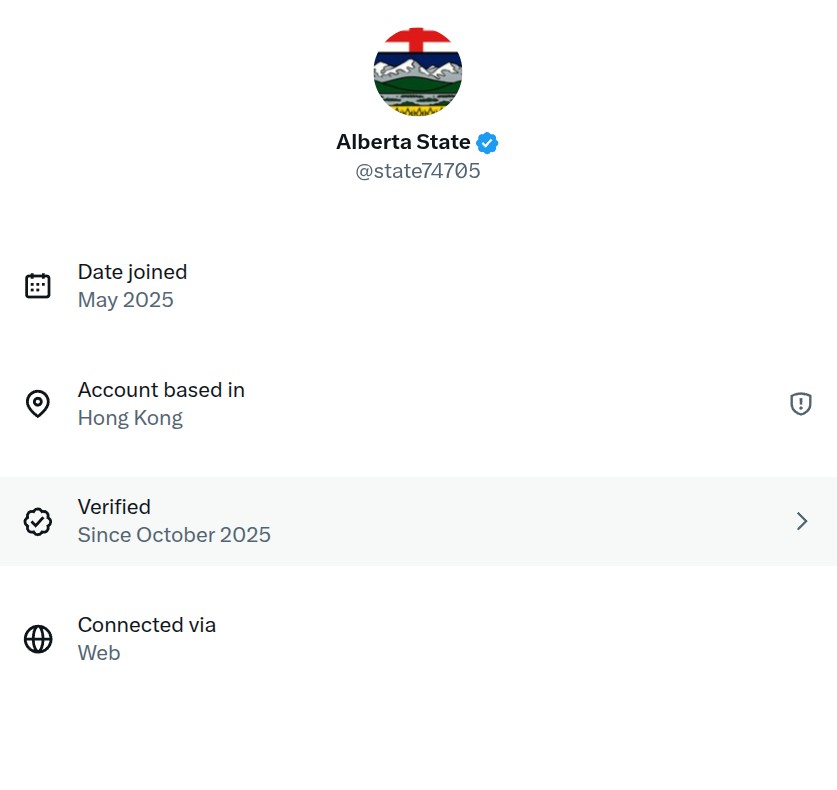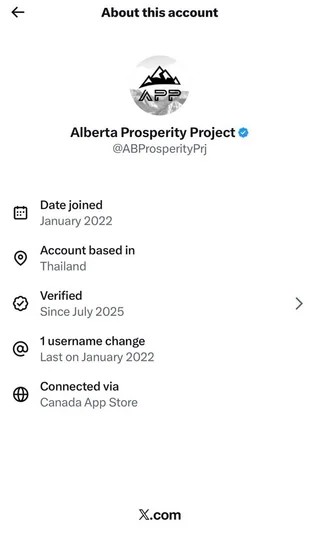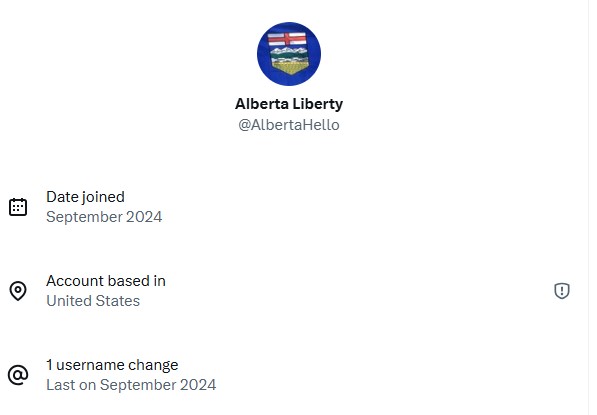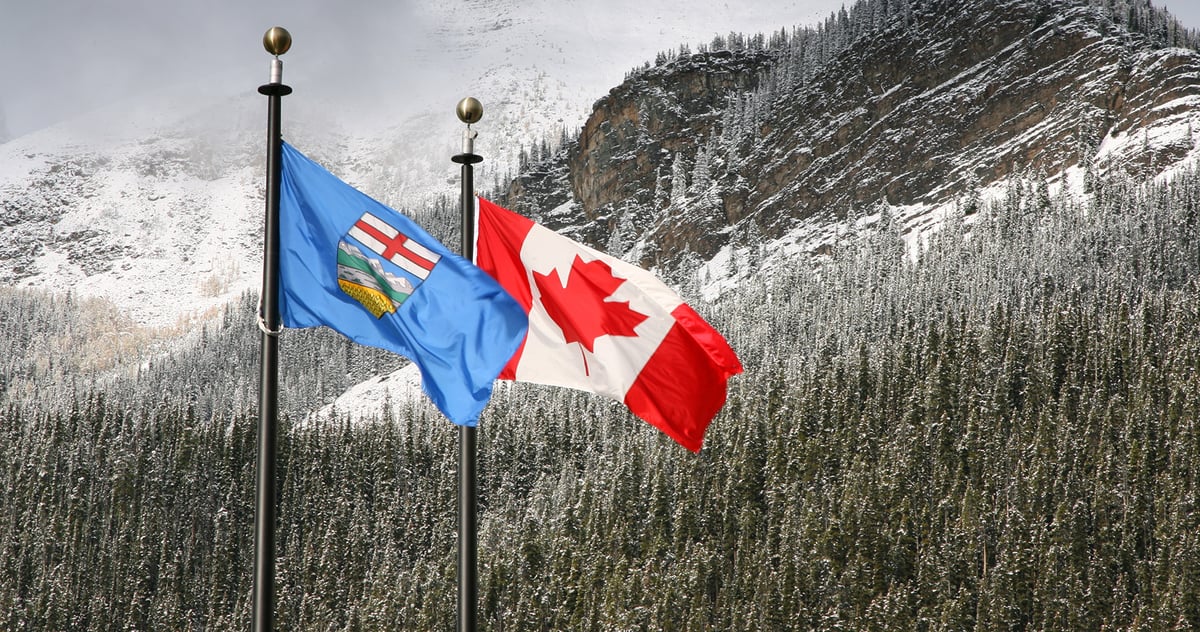Are Alberta Sovereignty Pages Really Run From Alberta?
Over the past few days, people on social media have been pointing out something unexpected: some of the loudest accounts posting about Alberta sovereignty, separation, or political autonomy don’t seem to be based in Alberta at all. A few list locations like Thailand or Hong Kong in their public “About” details on X.
Anyone can see this information by opening an account’s profile, tapping “About this account,” and checking details such as where it’s registered, when it was created, and when it became verified. It’s not leaked data or guesswork; it’s what the platform itself chooses to display.



Why location isn’t the whole story
A foreign location tag doesn’t automatically mean someone overseas is secretly running a political operation. People move, work remotely, use VPNs, or set up accounts while travelling and never bother changing the settings. Agencies also hire contractors all over the world to manage social content. There are plenty of ordinary, non-sinister explanations.
At the same time, the optics are jarring. When an account leans heavily into Alberta identity but appears, on paper, to be operating from somewhere in Asia, it cuts against what many people assumed about who’s behind the posts.
The questions people are really asking
Most Albertans reading these pages probably picture a neighbour, co‑worker, or at least someone living in the province. When that mental image clashes with a location tag from another country, it naturally raises questions about credibility, intentions, and whose interests are being represented.
That doesn’t automatically point to misconduct or foreign interference. What it does show is how easy it is for online political narratives to feel local while actually being produced from somewhere else—or by people with a more complicated connection to the place they’re talking about.
Why transparency matters here
This isn’t about catching one “gotcha” account or discrediting an entire movement. It’s about acknowledging something people have noticed and admitting that it’s hard, as an ordinary user, to understand who is behind political content online.
Stronger, clearer transparency tools from platforms would help. If users had more context about account history, organizational links, or where teams actually operate from, they could judge messages with more confidence instead of relying on guesswork and vibes.
A push for clarity, not blame
Nothing in these recent discoveries proves bad intent, and jumping straight to accusations only clouds the conversation. The more productive response is to ask for better disclosure from platforms and, where possible, from the people running political pages themselves.
In a province where debates about identity and autonomy are already heated, knowing who is shaping the conversation is part of having an honest, informed public debate online and off.








